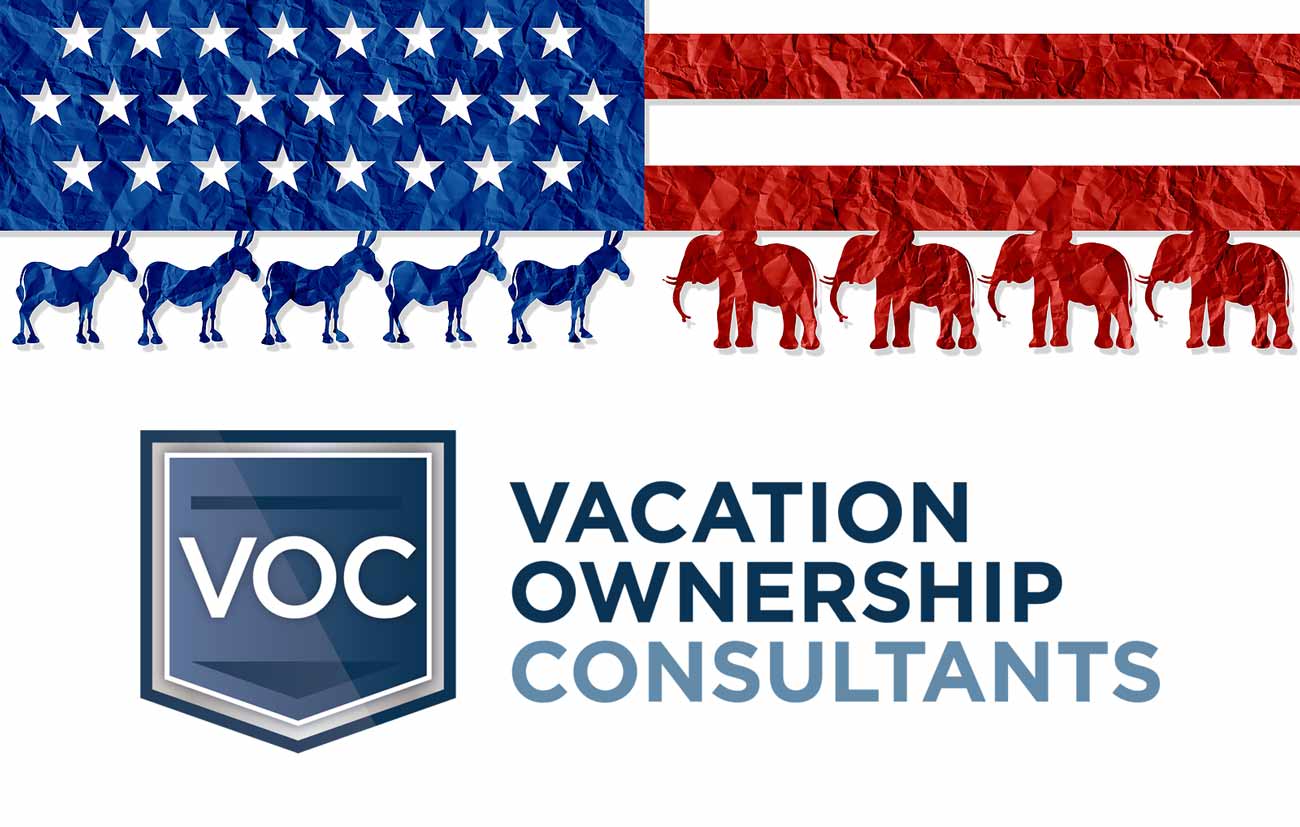Timeshare travel in America has always leaned heavily on political advantages when it comes to growth. For years now, we’ve been covering the effects of lobbyists on lawmakers and how the industry has essentially taken over major vacation destinations across the country. The capital pull is tremendous and rarely does anything get in their way. But the 2020 U.S. election is far different for timeshare resorts.
Since March, COVID-19 has slowly ended nearly all prosperity for hospitality chains. In turn, the result of the election can and will impact the way they do business in 2021 and beyond. While this article may initially seem like an attempt to sway your vote in one direction, we assure you it is not. At the end of the day, both candidates have made it rather clear what their intentions are. This makes projection rather clear.
One Candidate Wants to Reopen the Economy.
During a time of civil unrest and a pandemic without a cure, it can be easy to assume the worst with a reopened economy. Despite a 99% survival rate, the potential for mass illness is real. But does it warrant a high level of fear? To some, a respiratory illness does permit concern. At the same time, what does reopening the economy actually mean?
At this point in time, many people have lost everything because their business has been shut down. Reopening may allow them to salvage some of what’s already been lost. If people are willing to go out in public and expose themselves, should they be able to?
If they require a mask inside, should they be scrutinized? Will there be anything holding people back from choosing to wear a mask and social distance? Will certain industries with close quarters and lots of contact still be off limits?
A Reopening May Not Benefit Timeshare Travel.
Timeshare travel, and resort life in general, is something worth keeping an eye on. Even if the economy were to reopen fully, and COVID-19 is treated like the flu, hotels and resorts may be required to take further sanitation measures that hinder the experience. Besides, it’s hard to gauge just how many people will travel. Just because the economy reopens, per se, it doesn’t necessarily mean things will be “back to normal.”
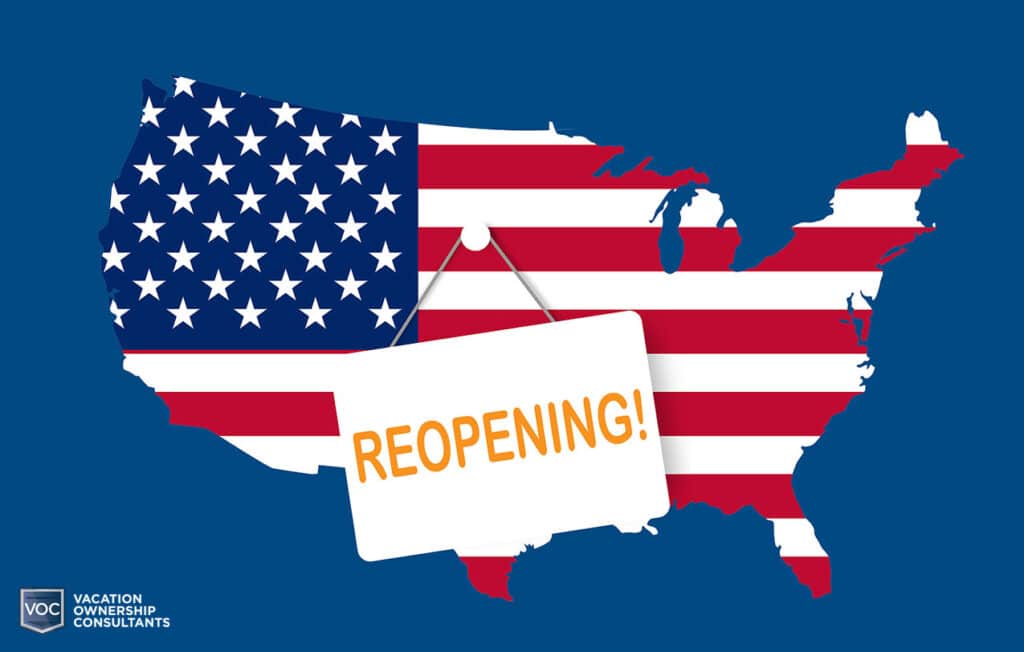
Extensive security checks could make the process excruciating for families. Continued restrictions on international travel could also pose unexpected problems. While things may quickly change in America, regulations in other countries still need to be considered. Either way, timeshare resorts can’t expect a surplus of foreign tourists filling their rooms anytime soon. So they have to find a way to salvage their losses elsewhere.
He Also Wants to Provide Pro Business Tax Cuts.
One of the most scrutinized elements of this presidential strategy is that it’s said to benefit corporations – or “the man.” While this is certainly true in a direct tax sense, it doesn’t mean the entire economy doesn’t reap the rewards. In fact, decreased taxes on resorts could be the only hope for timeshare owners to catch a break after all is said and done. In other words, a hike could result in a trickle down effect of higher annual fees for owners.
While this is somewhat of a reach, nothing in history tells us timeshares won’t fund their initiatives with owner’s money through assessment and maintenance fees. For the most part, they can charge them for almost anything they deem credible and get away with it. They’ve already proven they’ll do whatever it takes to return the business to a profitable plateau. Timeshare owners don’t own equity and are almost never involved in decision making. They’re simply contractually obligated to pay for a weekly unit or membership.
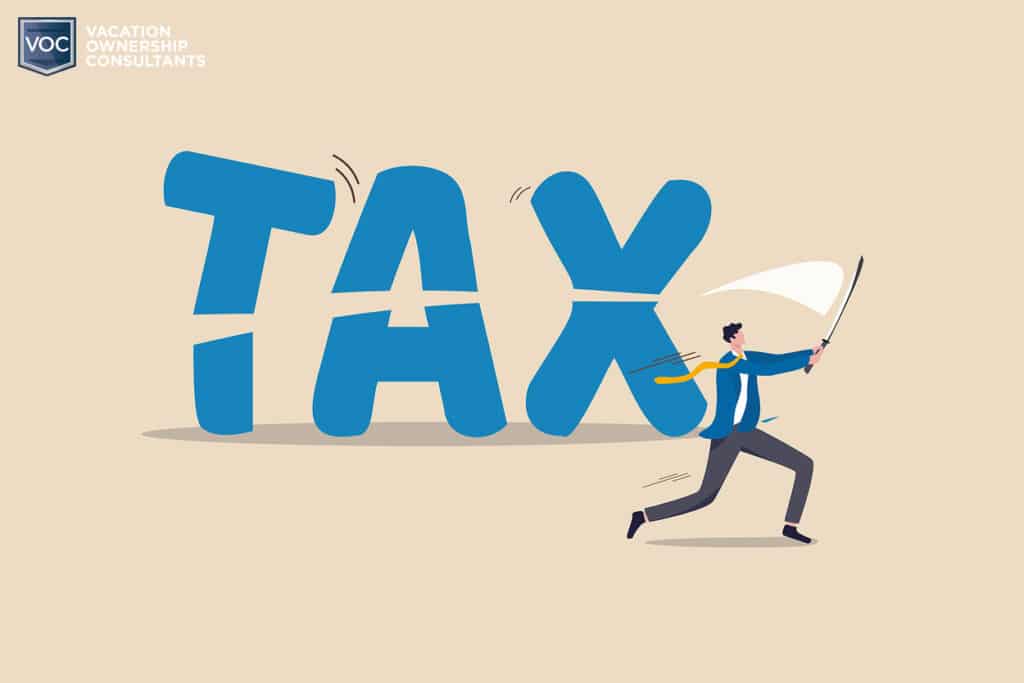
At the same time, protruding optimism for timeshare ethics can be misleading. Tax breaks could also help them pump money into advertisements to sell more intervals or even to cover legal costs for ongoing lawsuits against current owners.
Since the pandemic started, they haven’t provided much aid. A financial boost could result in arrogance and an invisible sense that they’re able to get away with skimming timeshare owners in a time of need.
So, Are Tax Cuts and a Reopening a Good Idea?
When it’s all said and done, the lifting of regulations and incentivising businesses may not be enough to alter the course of timeshare history. Travelers can definitely expect an influx in timeshare sales strategies if tourism is welcomed soon. In fact, many will more than likely fall for the product due to the euphoria of their post COVID-19 vacation. They’ve had months now to fine tune their strategies. So should we consider this a positive?
Regarding current vacation owners, a reopening will give them a chance to utilize what they’ve paid thousands for, but it doesn’t eliminate the fear of COVID-19. Matter of fact, it doesn’t eliminate the visible divide in this country. No matter what corporations do in response to an open market, the clash of the people is still a cause for concern. Even small things like conflict within the resort can ruin your vacation quickly. Who’s to say vacation owners will even be able to book their weekly interval?
One Candidate Wants to Shut Down the Economy.
On the other side of the coin, there’s a candidate that’s looking to keep things shut down until medical and scientific advancements have occurred – in order to protect the American people. Mask mandates and further distancing measures are said to be needed in order to ensure the spread of COVID-19 ceases in our country. While this is a valiant effort on his behalf, there is some pushback that’s starting to reach a tipping point.
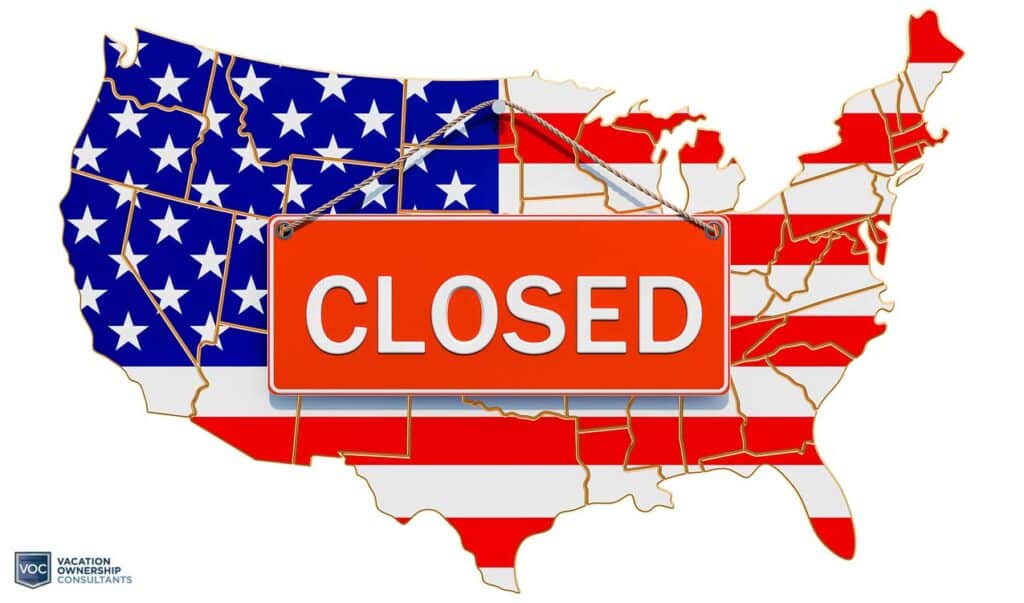
If the economy was to remain closed for an extended period of time, thousands of businesses would fail and the people will be dependent on the government. It would be almost impossible for resorts to survive a shutdown. Even though timeshares have been able to lay off most of their employees while collecting payments from owners, they’re still losing out on billions of dollars in revenue. Extending the ban would result in a number of acquisitions and essentially a large shift in power.
He Also Wants to Increase Taxes on Corporations.
When it comes to sticking it to the man, most Americans don’t understand that this eventually comes out of their pockets. While tax hikes on large corporations may seem ideal, doing so will create inflation on consumer driven products. In the end, corporations will be able to make their money back while the average American becomes buried in their spending. Besides, tax credits always benefit the wealthy.
Most timeshare owners don’t have a lot of money laying around and an increase in taxes impacts their budget. If you consider the fact that millions of owners are currently out of work, making timeshare payments has got to be a huge hindrance. If increased taxes result in higher fees for vacation owners (in order to help timeshares balance higher taxes themselves), owners will be at the mercy of the resort.
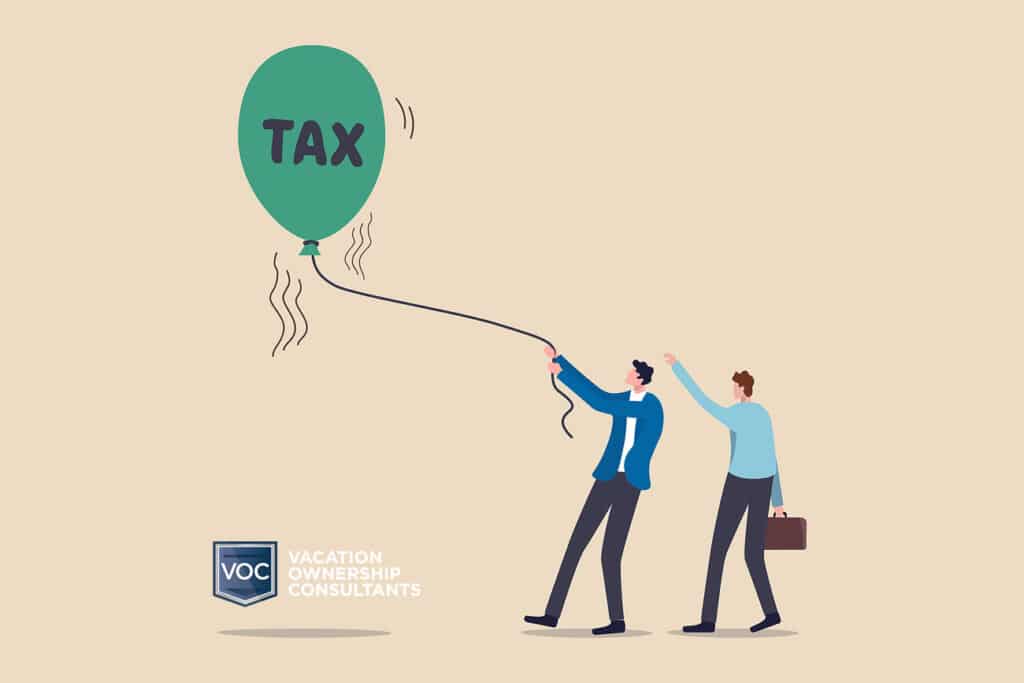
What Could Happen to Desperate Timeshare Owners?
When this happens, most buyers look for a way to get out of their contract. In the past it’s always been binding and the resort hasn’t provided much assistance. If a travel ban is extended and higher taxes are implemented, it wouldn’t be unusual for timeshares to look into their playbook. Recently, some have already been strategically rolling their owners into new points packages, anticipating no travel opportunities in 2021.
While this may seem like a way for owners to make up for their losses, it could actually put them in a far worse position. What they’re basically doing is, telling owners they’ll buy back their deeded contract and sell them a points program that’s supposedly more exchangeable.
Vulnerable Consumers May Become More Vulnerable.
The problem is, availability with timeshare points is usually limited even more than a floating interval is. In turn, points members have to continuously purchase more points to compete with other owners for availability. Elderly buyers have widely been known to be victimized by these programs. Some of our clients have even signed up for more than $150K in financial obligations by accident.
While an aggressive response can definitely still occur under the other candidate’s policy (because resorts are losing money), it’s a lot more likely to happen if the economy remains closed and taxes increase. Right now, the only access to revenue is through their existing client base.
Timeshares will be desperate to regain as much capital as they can in order to satisfy their shareholders. Throughout this pandemic, they haven’t done much of anything to reassure their existing client base while doing nearly everything to protect their earnings.

The U.S. Election and Timeshares.
At VOC, we’ve spoken to thousands of people that regret their decision to purchase a timeshare. Although it can be a fruitful experience, times like these present a huge problem for most buyers. Moreover, there just isn’t always a viable escape route and many dig themselves into a deeper hole. Our goal is to help you understand what you can expect so you can make effective decisions.
Over the next few years, it could be a rough experience for vacation owners. While it’s hard to pinpoint exactly how timeshares will handle the result of the 2020 U.S. election, they probably have an ideal candidate of their own. Either way, it’s safe to say they’re going to take aggressive measures to recover their losses.
Timeshares Know How to Maximize Profits.
If sales strategies are pressure-filled during seasons of abundance (as a history of lawsuits have proven), then they’re probably licking their chops at a season of contract-strapped owners and eager vacationers. With that being said, it’s important that consumers keep an eye on the travel industry over the next couple of months.
No matter what happens in this 2020 U.S. Election, timeshares have already lost a lot of money. Finding ways to appeal to Americans is their only way of recovering. So, be smart about your travel decisions and always research before signing anything. If you happen to run into a timeshare problem, we’re always available for a free consultation.

